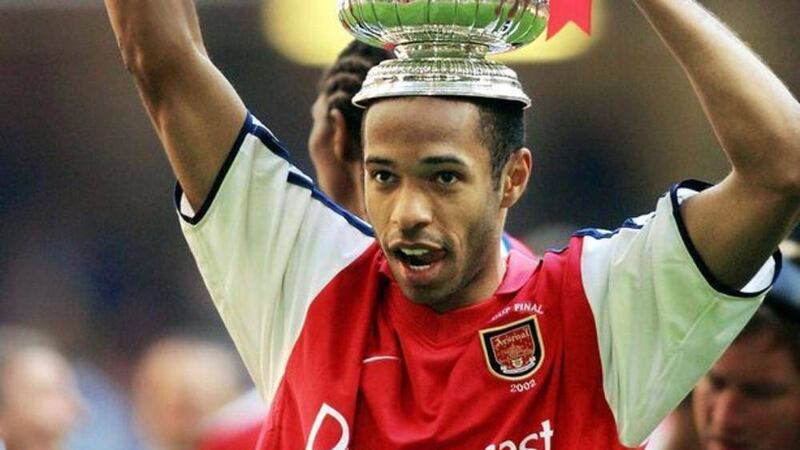ARSENAL resurrected the career of Denis Bergkamp and elevated Thierry Henry to his position as a global superstar by moving him from Juve’s wing to centre forward at Highbury, yet the progress of Jack Wilshire (England’s brightest midfield hope at one stage) is questionable, at least as far as Paul Scholes was concerned last year.
Freddy Adu was once tipped for world domination in his teens yet now, at only 26, he is playing for the 11th club of his career in Finland (KuPS, proud holders of the record for most successive seasons in the top flight: pub quiz experts take note).
Among the bushes in Tyrone discussions centre on why the likes of Ronan O’Neill, Niall McKenna, Daisy McDermott, Kyle Coney, Conan Grugan, Harry Og Conlon, Shea McGuigan and many more are currently not / never became regular starters and stars on the senior county team, despite stellar underage and club success.
The key point is that while talent management is central to the success of a business, it is not an exact science. Prospects don’t always turn into superstars, and superstars can sometimes come from nowhere. The best you can do is identify it, put structures in place, learn from your success and failures and keep creating the right environment for it to flourish.
In business it’s the same. Ever since the management gurus McKinsey spoke about the ‘war for talent’, almost two decades ago, echoed in a book of the same name by Ed Micheals in 2001, companies (and in particular the HR departments) have made efforts (or at least noises) about making talent management a key part of their foundations. The problem is that many of them really don’t know what this means.
The first question is: what is talent? “You’ll know it when you see it” was the claim made in the Ed Michaels book.But is that really helpful? Perhaps more usefully the CIPD define talent as ‘those individuals who can make a difference to organisational performance either through their immediate contribution or…by demonstrating the highest levels of potential’. They go on to define talent management as ‘the systematic attraction, identification, development, engagement, retention and deployment of those individuals who are of particular value to an organisation..’.
So according to the CIPD, talent management is effectively what HR professionals should have been doing all these years; getting the best people in the door, the best out of people once they are through that door, maximising their potential and keeping them with the company.
How best to do this is the next question? The first port of call is to actually understand what you need in your business to be successful. Accordingly make sure your roles are well defined, that the competencies required for excellence are clear, measureable and relevant.
Next you need to make your company attractive. Salary is nice, but by and large real talent will always look at the surrounding package; flexible working, reputation, opportunity for advancement, provision of interesting work and so on, but remember it may not be the most obvious part of the package that thing that attracts people to your firm.
Next ensure that your organisation has a culture that talent thrives in, be that place where failures are discussed and analysed, not blindly punished. Create a learning environment where staff are encouraged to better themselves and take on new challenges. Help make change a byword for progress rather than fear. Do what you say you will do, don’t make empty promises.
Ensure your leadership has bought into the concept and that they give direction, purpose and inspiration. Encourage diversity, make your workplace an interesting place to come to every day, where you can work with staff who can contribute different stories, experiences and thinking. Be fair and consistent in what you do and how you deal with your people.
Finally make sure you involve the right people. While HR can help put structure and process in place and senior management can provide the drive and overarching support, line management actually has a really big role to play. Think about the day to day activity in your business. This is where talent is observed, nurtured, directed, assisted and grown. If you stop and think however how many companies can genuinely say they train line mangers in the art of talent management?
Let’s be smart about talent; understand it, find it, nurture it, reward it and retain it.
:: Barry Shannon (barry.shannon@capita.co.uk) is head of HR business development at Capita HR Solutions in Belfast (www.capitahrsolutions.co.uk)







